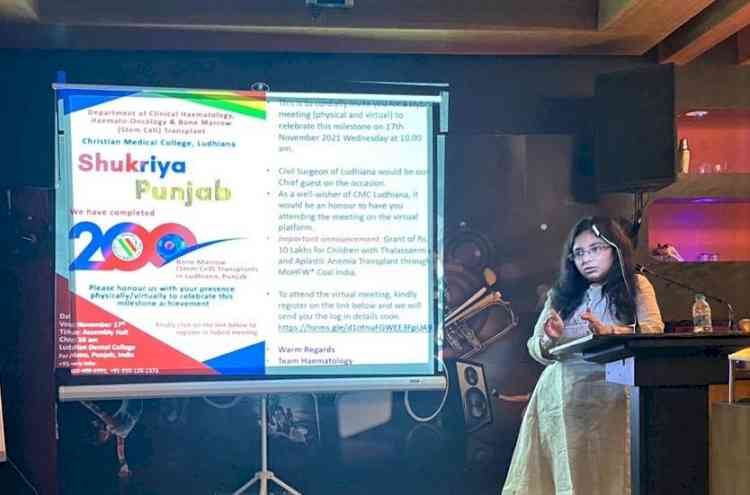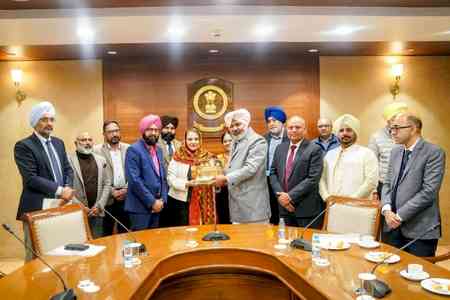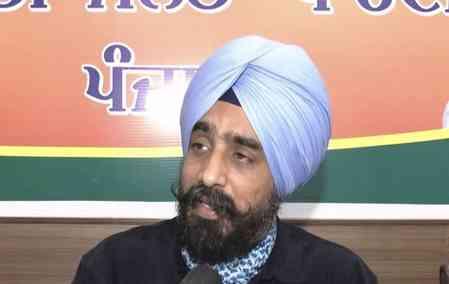Targeted immunotherapy key to future of cancer treatment: Oncologists
The annual conference of AccuScript consultancy, Ludhiana held

Ludhiana, November 1, 2021: The number of patients living with as well as dying of cancer is increasing all over the globe, primarily due to modifiable causes of cancer such as smoking, lack of physical activity, and obesity. Smoking was the single most important causative factor or lung cancer. Speaking at the annual conference of AccuScript consultancy, Ludhiana, Dr. Kanal Jain, Head of medical oncology at Dayanand Medical College, Ludhiana mentioned that if we could manage a ban on tobacco in India, the number of new cases could go down by 30% annually. He presented the global and Indian statistics on cancer which showed that the districts in Malwa belt of Punjab, e.g. Muktsar, Mansa, Faridkot, and Bhatinda had the higher incidence of cancer which is about 50% over than the national average.
Talking about the novel therapies, Dr. Jain suggested that targeted therapies, using modulation of our immune defense systems, are the key to future cancer treatments. Imatinib/GLEEVAC appeared on the TIME magazine cover as the new ammunition in the war against cancer. The continuous research and development of new classes and large array of drugs have resulted in the improvement in overall survival of the cancer patients. Manipulation and management of the body immune system against cancer cells through different drugs known as immunotherapy has taken the fancy of the modern pharmaceutical industry. The introduction of these immune stimulators or monoclonal antibody drugs has improved the longevity in all types of cancer particularly the breast and lung cancer. Trastuzumab (humanized anti-HER2 monoclonal antibody) which blocks HER2 gene activity without harming healthy cells, and Pertuzumab (HER2 dimerization inhibitor) are good examples of such drugs that are showing promise in cancer care. In some cases, two antibodies are used to get better results. Since the discover of Trastuzumab in 1998, several other similar antibodies have been approved for breast cancer. Dr. Jain discussed a number of actual cases treated by him where the patients have survived more than 9 years using the targeted immunotherapy against an expected survival of 1-2 years if the conventional chemotherapy was used.
Dr.Rajinder Chawla, Director AccuScript Consultancy (an HEOR company) talked on the availability of the latest drugs, their cost in India and insurance cover and pointed out that most the latest drugs are available in India along with the west, however a few drugs need to be imported after obtaining the import permission from the regulatory authorities and these drugs are expensive costing 2-4 lakh of rupees per month. Dr.Jain mentioned that the total cost of cancer treatment many times goes beyond Rs. 15-20 lakh, the medical insurance cover of 4-5 lakh is not enough and ‘financial toxicity’ of cancer treatment becomes unbearable many times. The insurance sector must be strengthened to come bring relief to the patients suffering from this ‘curable’ disease.
Dr. Poojitha Byreddy, DM resident at the bone marrow transplant unit at Christian Medical College, Ludhiana spoke on the stem cell transplant for thalassemia and blood cancer patients. She explained the process and complexities of the procedure and emphasized that the autologous stem cell treatment, where patients own healthy stem cells are used for the treatment is the way forward in putting reins to the cancers like multiple myeloma and leukemia. CMC hospital has completed the stem cell transfusion of 200 patients recently. The cost of ASCT in India starts from ₹15,00,000, but Christian Medical College in partnership with certain social welfare agencies is providing almost free treatment to select candidates. The latest advancement in the treatment of blood cancer is the CAR-T therapy, recently been developed by a few pharma companies like Celgene and Kite pharma, and have received approval from FDA (USA) but are yet to become available in India.



 cityairnews
cityairnews 










